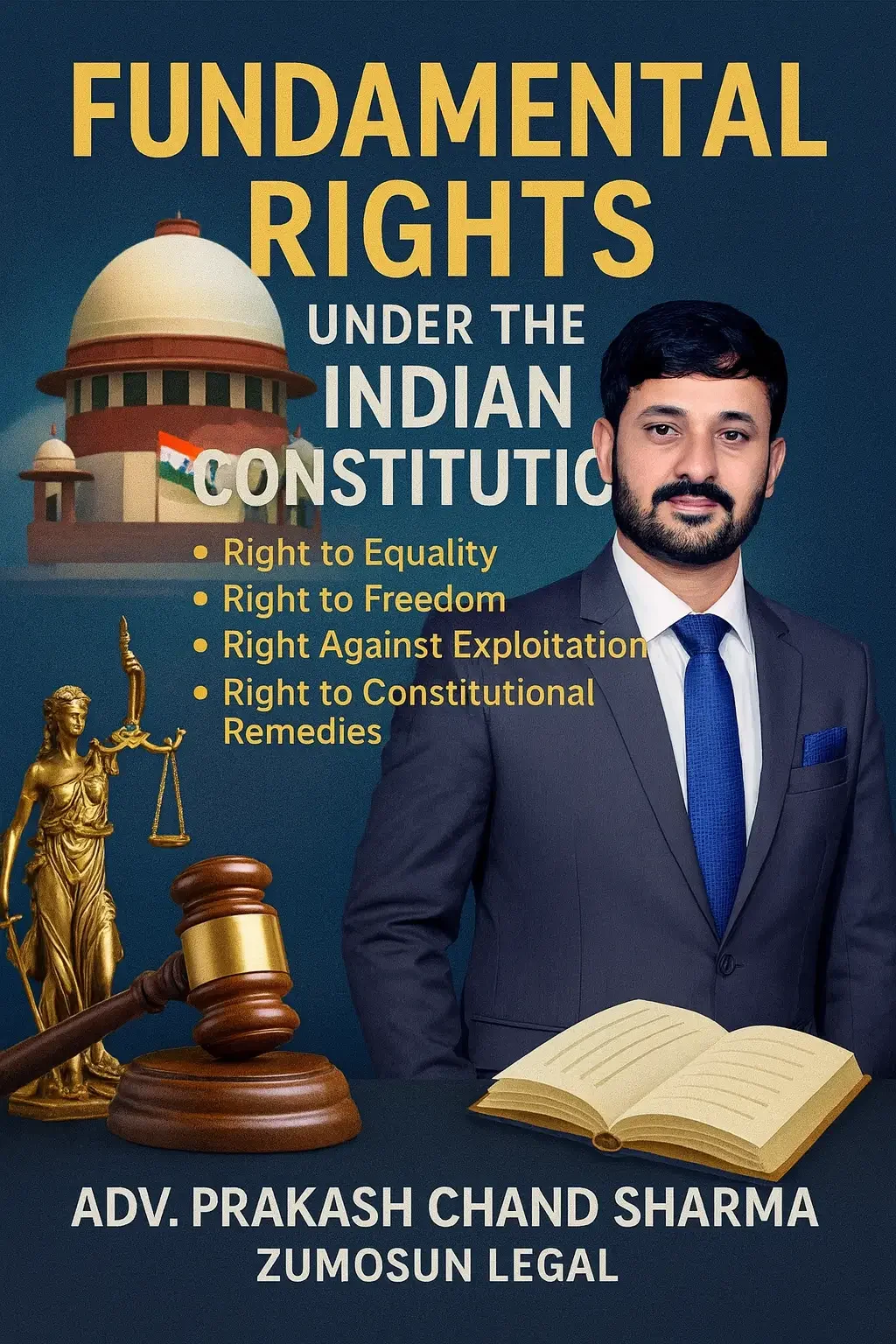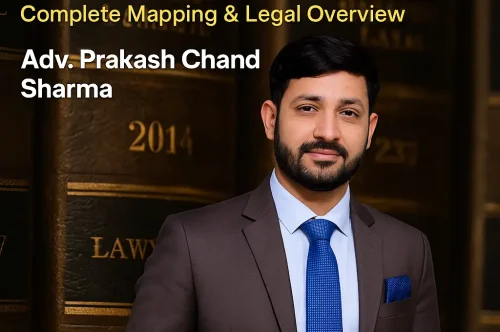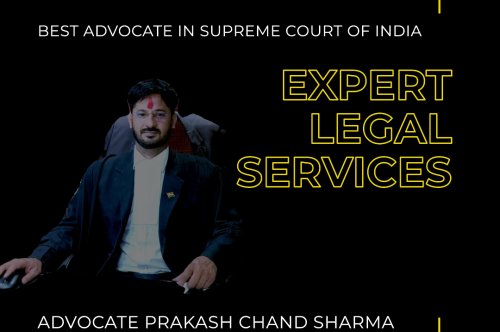
Fundamental Rights Under the Indian Constitution: A Practical Guide for Clients, Students & Young Advocates
As an advocate, one quickly realises that Fundamental Rights are not just constitutional theory — they are powerful tools used daily in courts to protect liberty, equality, and justice. Whether it is unlawful arrest, property disputes, freedom of speech issues, or discrimination, Part III of the Constitution (Articles 12–35) forms the backbone of most constitutional litigation.
This article explains Fundamental Rights from a practitioner’s perspective so that students, clients, and junior advocates can understand how these rights operate in real-life matters.
1. Right to Equality (Articles 14–18)
Article 14 — Equality Before Law & Equal Protection
In court, Article 14 is invoked when government action is arbitrary, unreasonable, or discriminatory.
As advocates, we use Article 14 to challenge:
-
Unfair tenders
-
Illegal government orders
-
Discriminatory recruitment processes
-
Unequal treatment by authorities
Case Law: Maneka Gandhi v. Union of India — established “fair, just, and reasonable” procedure.
Article 15 — Prohibition of Discrimination
Often used in cases involving:
-
Admission disputes
-
Hostel or institution discrimination
-
Benefits denied on caste/gender grounds
Advocates frequently argue Article 15 when a public authority violates equality.
Article 16 — Equality in Public Employment
This provision is powerful in:
-
Competitive exam cases
-
Service matters
-
Illegal appointments
-
Denial of reservation benefits
High Courts regularly quash recruitment procedures using Article 16.
Article 17 — Abolition of Untouchability
This directly supports SC/ST victims in cases involving discrimination, temple entry issues, or public humiliation.
Article 18 — Abolition of Titles
A rarely litigated right, but important to prevent misuse of honorary titles.
2. Right to Freedom (Articles 19–22)
Article 19 — Six Fundamental Freedoms
Essential in cases involving:
-
Social media restrictions
-
Protest permissions
-
Press freedom
-
Professional restrictions (advocates, traders, business owners)
Case Law: Shreya Singhal v. Union of India halted abuse of Section 66A IT Act, protecting online speech.
Article 20 — Protection in Criminal Cases
Important in criminal defence. Ensures:
-
No double jeopardy
-
No retrospective punishment
-
No forced confession
Advocates use Article 20 when police force signed statements or threaten double prosecution.
Article 21 — Right to Life & Personal Liberty
Article 21 is one of the most litigated rights in India.
Used in cases involving:
-
Illegal arrests
-
Police harassment
-
Custodial violence
-
Privacy violations
-
Right to travel
-
Right to dignified life
-
Medical negligence cases
-
Environmental protection
-
Property demolition without notice
Today, Article 21 covers every aspect of “meaningful life”.
Article 22 — Protection Against Unlawful Arrest
Very important for practice. Advocates invoke Article 22 when:
-
Police arrest without informing grounds
-
Person not produced before magistrate within 24 hours
-
Legal counsel is denied
-
Preventive detention is misused
3. Right Against Exploitation (Articles 23–24)
Advocates use these rights in cases of:
-
Human trafficking
-
Bonded labour
-
Child labour (under 14)
-
Forced labour in factories, hotels, agriculture
These petitions often go to High Courts as PILs.
4. Freedom of Religion (Articles 25–28)
Important in cases involving:
-
Temple entry
-
Religious conversion
-
Minority institutions
-
Religious disputes
-
Government interference in religious practices
Advocates must balance public order with religious freedom.
5. Cultural & Educational Rights (Articles 29–30)
Commonly invoked in:
-
Minority school disputes
-
Admission issues
-
Minority institutes fighting for autonomy
-
Cultural discrimination cases
These rights protect India’s cultural diversity.
6. Right to Constitutional Remedies (Article 32)
Dr. B.R. Ambedkar called Article 32:
“The heart and soul of the Constitution.”
As advocates, Article 32 and Article 226 empower us to file writ petitions for:
-
Illegal arrest → Habeas Corpus
-
Government not performing duty → Mandamus
-
Challenging judicial/quasi-judicial orders → Certiorari
-
Stopping inferior courts from exceeding jurisdiction → Prohibition
-
Challenging illegal occupation of public office → Quo Warranto
Most PILs, service matters, police excess petitions, and human rights cases rely on writs.
Practical Example from Advocacy
A client calls at midnight:
“My brother was taken by police without any notice.”
As an advocate, you:
-
Demand grounds of arrest (Article 22).
-
Ask whether mandatory procedures under CrPC were followed.
-
If illegal detention is suspected, you file Habeas Corpus in High Court immediately.
-
Use Article 21 + Article 22 + D.K. Basu guidelines.
This is how constitutional rights protect real lives.
FAQs
Q1. Can a private company violate Fundamental Rights?
Directly no, but courts apply "State-like functions" doctrine in some cases. Article 14 applies if the private body performs public duty.
Q2. Can the State restrict speech under Article 19?
Yes, but restrictions must be reasonable, not arbitrary.
Q3. What if police do not present the accused within 24 hours?
Article 22 is violated → immediate writ petition + compensation claim.
Conclusion
Fundamental Rights are the strongest protection citizens have against misuse of power. For advocates, these rights are the daily working tools in constitutional litigation. For practicing advocates understanding these articles, case laws, and writ applications is essential for clearing the exam and beginning effective legal practice.
Author
Adv. Prakash Chand Sharma
Chartered Engineer | Supereme Court & High Court Advocate | CAO
Founder: Zumosun Legal, Techlam Legal Solutions, JPSD Taxsun LLP
Powered by: TheLegalCourt.com | TheLegalBank.com | www.zumosun.com
Prakash Chand Sharma, the founder of Zumosun Universe and the creator of Activation Science — a transformative framework designed to activate the infinite universe within every individual, organization, and civilization.
My work focuses on unlocking PURE Intelligence and Exponential Growth, guiding humanity from potential to activation — from limitation to expansion. Through Activation, I aim to build an Activated Universe and Civilization, where every entity continuously evolves, innovates, and contributes to universal growth forever.
Follow On:-
1. https://www.linkedin.com/in/eng-adv-cao-prakash-chand-sharma-26586143/
2. https://www.facebook.com/er.adv.ca.prakash.chandsharma.35



